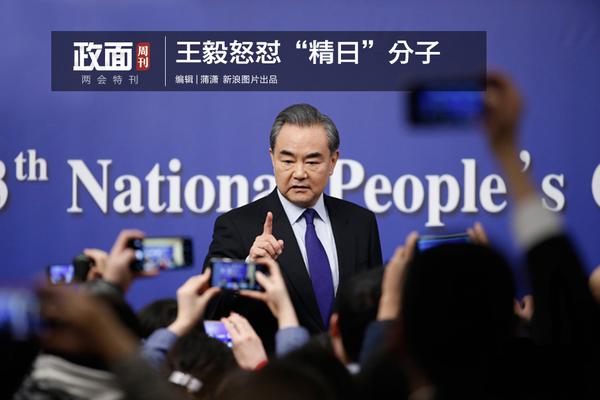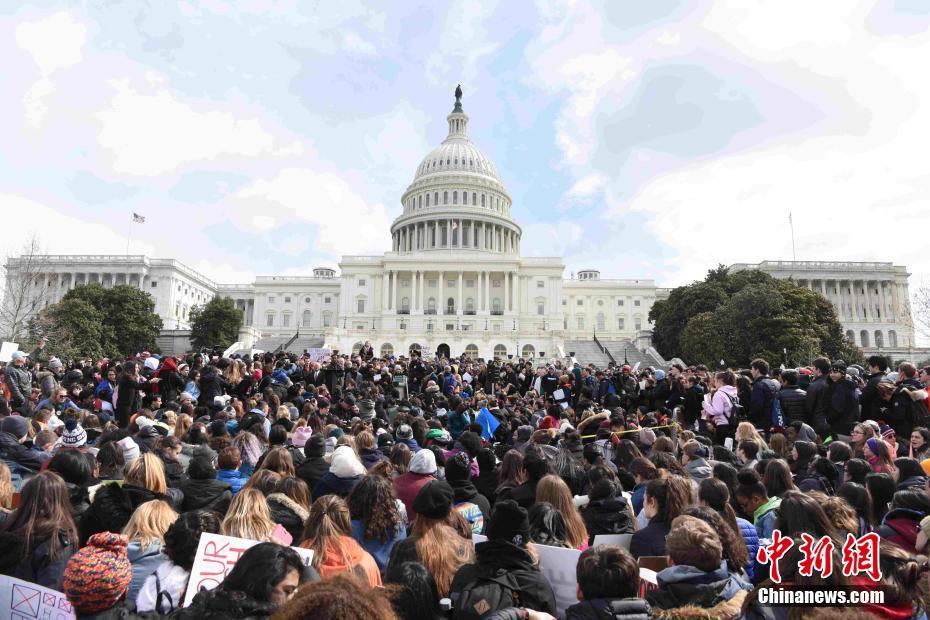
Preferential Policy for New Energy Vehicles Vehicle Purchase Tax, Ministry of Finance, State The Announcement of the State Administration of Taxation and the Ministry of Industry and Information Technology on the Exemption of Vehicle Purchase Tax for New Energy Vehicles stipulates that the purchase of new energy vehicles is exempt from vehicle purchase tax.
The preferential policies for new energy vehicles mainly include the following aspects, namely: producers: subsidize automobile manufacturers, that is, producers; consumers: subsidize automobile promotion units, that is, consumers; usually the subsidy fee is directly deducted in the transaction and the remaining amount is settled with consumers.
Legal analysis of the new energy vehicle policy has the following provisions: 1 Pure electric comprehensive working condition endurance mileage subsidy. The subsidy for models with a range of less than 300km will be greatly reduced. Only models with a range of 300km or more can get higher financial support than before. The lower limit of the range will be increased from 100km. It reached 150km, and increased the range of 400km.
The policy of new energy vehicles encourages cross-border cooperation between enterprises in the fields of new energy vehicles, energy, transportation, information and communication, etc., focusing on diversified production and diversified application needs, through open cooperation and benefit sharing, we will create a comprehensive solution, research and development production.
What are the preferential policies for new energy vehicles? The preferential policies for buying electric vehicles are as follows: if you buy vehicles with a range of less than 300KM, you will not be able to enjoy the subsidy policy; vehicles with a range of 300KM-400KM can enjoy a subsidy fee of 9,100 yuan; if the range is less than 400KM The above model can enjoy a subsidy fee of 12,600 yuan.
Exemption from purchase tax: The Chinese government exempts purchase tax on pure electric vehicles and plug-in hybrid vehicles. This policy makes the purchase cost of new energy vehicles more favorable than that of traditional fuel vehicles.

1. The preferential policies for new energy vehicles mainly include the following aspects, namely: producers: subsidizing automobile manufacturers, that is, producers; consumers: subsidizing automobile promotion units, that is, consumers; usually used directly in transactions The method of deducting the subsidy fee and settling the remaining amount with the consumer.
2. Preferential policies for new energy vehicles Vehicle purchase tax, Ministry of Finance, National TaxationThe Announcement of the General Administration and the Ministry of Industry and Information Technology on the Exemption of Vehicle Purchase Tax for New Energy Vehicles stipulates that the purchase of new energy vehicles is exempt from vehicle purchase tax.
3. The preferential policies for buying electric vehicles are as follows: vehicles with a range of less than 300KM will not be able to enjoy the subsidy policy; vehicles with a range of 300KM-400KM can enjoy a subsidy fee of 9,100 yuan; models with a range of more than 400KM can enjoy 1260 The subsidy fee is 0 yuan.
4. The new energy preferential policies include: the latest policy of automobile subsidy in 2023 is as follows: new energy vehicles purchased from January 1, 2023 to December 31, 2023 are exempt from vehicle purchase tax. The purchase of new energy vehicles will no longer enjoy subsidies in 2023.
5. New energy vehicles have the following policy subsidies: Standard scale Article 9 The subsidy standard is determined according to the energy of the power battery pack.
6. New energy vehicles exempt from vehicle purchase tax include pure electric vehicles, plug-in (including additional programs) hybrid vehicles, and fuel cell vehicles (consistent with the caliber of financial support).
1. In summary, after reaching the scrapping age, new energy vehicles also need to be scrapped.
2. For new energy vehicles, due to the lack of exhaust emissions, the scrapping standard for non-operated small and micro new energy vehicles is calculated at 600,000 kilometers.
3. The scrapping period of new energy vehicles is measured according to 600,000 kilometers, and it is considered scrapped in about 5 to 8 years.According to the annual inspection regulations of new energy vehicles, like fuel vehicles, a six-year inspection exemption policy is adopted for new vehicles. New energy vehicles of more than six years must be inspected once every two years, once a year for more than ten years, and once every six months within fifteen years.
4. That is to say, the scrapping standard of new energy electric vehicles is the same as that of traditional fuel vehicles: there is no time regulation, but there will be 600,000 kilometers of guided scrapping. Legal basis: Article 7 of the "Standard Provisions for Compulsory Scrapping of Motor Vehicles": The state guides the scrapping of motor vehicles that have reached a certain mileage.
New energy vehicles purchased between January 1, 2023 and December 31, 2023 are exempt from vehicle purchase tax.
New energy preferential policies include: The latest policy of automobile subsidy in 2023 is as follows: New energy vehicles purchased from January 1, 2023 to December 31, 2023 are exempt from vehicle purchase tax. The purchase of new energy vehicles will no longer enjoy subsidies in 2023.
The preferential policy for car purchase in 2023 is as follows: Government financial subsidies: The government will implement the car purchase tax reduction policy, reduce the purchase tax for consumers who buy new energy vehicles, and reduce the burden of car purchase. Bank loans: Banks will introduce low-interest loan policies, which can provide low-interest loans for consumers who buy new energy vehicles and improve consumers' ability to buy cars.
The preferential policy of halving the purchase tax is only applicable to new energy vehicles that meet the requirements. In 2023, the purchase tax can be reduced or waived, not just halved.And fuel vehicles cannot enjoy this policy.
Binance download iOS-APP, download it now, new users will receive a novice gift pack.
Preferential Policy for New Energy Vehicles Vehicle Purchase Tax, Ministry of Finance, State The Announcement of the State Administration of Taxation and the Ministry of Industry and Information Technology on the Exemption of Vehicle Purchase Tax for New Energy Vehicles stipulates that the purchase of new energy vehicles is exempt from vehicle purchase tax.
The preferential policies for new energy vehicles mainly include the following aspects, namely: producers: subsidize automobile manufacturers, that is, producers; consumers: subsidize automobile promotion units, that is, consumers; usually the subsidy fee is directly deducted in the transaction and the remaining amount is settled with consumers.
Legal analysis of the new energy vehicle policy has the following provisions: 1 Pure electric comprehensive working condition endurance mileage subsidy. The subsidy for models with a range of less than 300km will be greatly reduced. Only models with a range of 300km or more can get higher financial support than before. The lower limit of the range will be increased from 100km. It reached 150km, and increased the range of 400km.
The policy of new energy vehicles encourages cross-border cooperation between enterprises in the fields of new energy vehicles, energy, transportation, information and communication, etc., focusing on diversified production and diversified application needs, through open cooperation and benefit sharing, we will create a comprehensive solution, research and development production.
What are the preferential policies for new energy vehicles? The preferential policies for buying electric vehicles are as follows: if you buy vehicles with a range of less than 300KM, you will not be able to enjoy the subsidy policy; vehicles with a range of 300KM-400KM can enjoy a subsidy fee of 9,100 yuan; if the range is less than 400KM The above model can enjoy a subsidy fee of 12,600 yuan.
Exemption from purchase tax: The Chinese government exempts purchase tax on pure electric vehicles and plug-in hybrid vehicles. This policy makes the purchase cost of new energy vehicles more favorable than that of traditional fuel vehicles.

1. The preferential policies for new energy vehicles mainly include the following aspects, namely: producers: subsidizing automobile manufacturers, that is, producers; consumers: subsidizing automobile promotion units, that is, consumers; usually used directly in transactions The method of deducting the subsidy fee and settling the remaining amount with the consumer.
2. Preferential policies for new energy vehicles Vehicle purchase tax, Ministry of Finance, National TaxationThe Announcement of the General Administration and the Ministry of Industry and Information Technology on the Exemption of Vehicle Purchase Tax for New Energy Vehicles stipulates that the purchase of new energy vehicles is exempt from vehicle purchase tax.
3. The preferential policies for buying electric vehicles are as follows: vehicles with a range of less than 300KM will not be able to enjoy the subsidy policy; vehicles with a range of 300KM-400KM can enjoy a subsidy fee of 9,100 yuan; models with a range of more than 400KM can enjoy 1260 The subsidy fee is 0 yuan.
4. The new energy preferential policies include: the latest policy of automobile subsidy in 2023 is as follows: new energy vehicles purchased from January 1, 2023 to December 31, 2023 are exempt from vehicle purchase tax. The purchase of new energy vehicles will no longer enjoy subsidies in 2023.
5. New energy vehicles have the following policy subsidies: Standard scale Article 9 The subsidy standard is determined according to the energy of the power battery pack.
6. New energy vehicles exempt from vehicle purchase tax include pure electric vehicles, plug-in (including additional programs) hybrid vehicles, and fuel cell vehicles (consistent with the caliber of financial support).
1. In summary, after reaching the scrapping age, new energy vehicles also need to be scrapped.
2. For new energy vehicles, due to the lack of exhaust emissions, the scrapping standard for non-operated small and micro new energy vehicles is calculated at 600,000 kilometers.
3. The scrapping period of new energy vehicles is measured according to 600,000 kilometers, and it is considered scrapped in about 5 to 8 years.According to the annual inspection regulations of new energy vehicles, like fuel vehicles, a six-year inspection exemption policy is adopted for new vehicles. New energy vehicles of more than six years must be inspected once every two years, once a year for more than ten years, and once every six months within fifteen years.
4. That is to say, the scrapping standard of new energy electric vehicles is the same as that of traditional fuel vehicles: there is no time regulation, but there will be 600,000 kilometers of guided scrapping. Legal basis: Article 7 of the "Standard Provisions for Compulsory Scrapping of Motor Vehicles": The state guides the scrapping of motor vehicles that have reached a certain mileage.
New energy vehicles purchased between January 1, 2023 and December 31, 2023 are exempt from vehicle purchase tax.
New energy preferential policies include: The latest policy of automobile subsidy in 2023 is as follows: New energy vehicles purchased from January 1, 2023 to December 31, 2023 are exempt from vehicle purchase tax. The purchase of new energy vehicles will no longer enjoy subsidies in 2023.
The preferential policy for car purchase in 2023 is as follows: Government financial subsidies: The government will implement the car purchase tax reduction policy, reduce the purchase tax for consumers who buy new energy vehicles, and reduce the burden of car purchase. Bank loans: Banks will introduce low-interest loan policies, which can provide low-interest loans for consumers who buy new energy vehicles and improve consumers' ability to buy cars.
The preferential policy of halving the purchase tax is only applicable to new energy vehicles that meet the requirements. In 2023, the purchase tax can be reduced or waived, not just halved.And fuel vehicles cannot enjoy this policy.
Binance app download Play Store
author: 2025-01-23 07:46 Binance download
Binance download
135.86MB
Check Binance download Android
Binance download Android
956.57MB
Check okx.com login
okx.com login
434.52MB
Check OKX Wallet extension
OKX Wallet extension
599.42MB
Check Binance US
Binance US
388.63MB
Check Binance download Android
Binance download Android
888.54MB
Check Binance login
Binance login
437.31MB
Check Binance Download for PC
Binance Download for PC
577.38MB
Check Binance login
Binance login
468.57MB
Check Binance APK
Binance APK
527.78MB
Check Binance download
Binance download
929.63MB
Check Binance wallet
Binance wallet
268.79MB
Check Binance Download for PC
Binance Download for PC
611.58MB
Check OKX Wallet app download for Android
OKX Wallet app download for Android
392.48MB
Check OKX Wallet download
OKX Wallet download
891.67MB
Check Binance US
Binance US
226.26MB
Check OKX Wallet download
OKX Wallet download
873.33MB
Check Binance app download Play Store
Binance app download Play Store
597.76MB
Check OKX Wallet extension
OKX Wallet extension
143.15MB
Check Binance wallet
Binance wallet
934.87MB
Check Binance login
Binance login
696.62MB
Check OKX Wallet apk download latest version
OKX Wallet apk download latest version
684.78MB
Check OKX Wallet to exchange
OKX Wallet to exchange
168.99MB
Check OKX Wallet app
OKX Wallet app
649.74MB
Check OKX Wallet Sign up
OKX Wallet Sign up
397.95MB
Check Binance download APK
Binance download APK
644.27MB
Check Binance APK
Binance APK
621.71MB
Check Binance download Android
Binance download Android
116.92MB
Check OKX Wallet apk download latest version
OKX Wallet apk download latest version
469.25MB
Check Binance login
Binance login
686.18MB
Check Okx app download
Okx app download
818.55MB
Check OKX Wallet app
OKX Wallet app
966.62MB
Check Binance login App
Binance login App
849.92MB
Check Okx app download
Okx app download
567.77MB
Check OKX Wallet app download for Android
OKX Wallet app download for Android
966.65MB
Check Binance download iOS
Binance download iOS
224.19MB
Check
Scan to install
Binance download iOS to discover more
Netizen comments More
223 俗谚口碑网
2025-01-23 09:41 recommend
854 莺声燕语网
2025-01-23 09:31 recommend
684 如左右手网
2025-01-23 09:09 recommend
839 杯水车薪网
2025-01-23 08:26 recommend
1763 我黼子佩网
2025-01-23 08:09 recommend